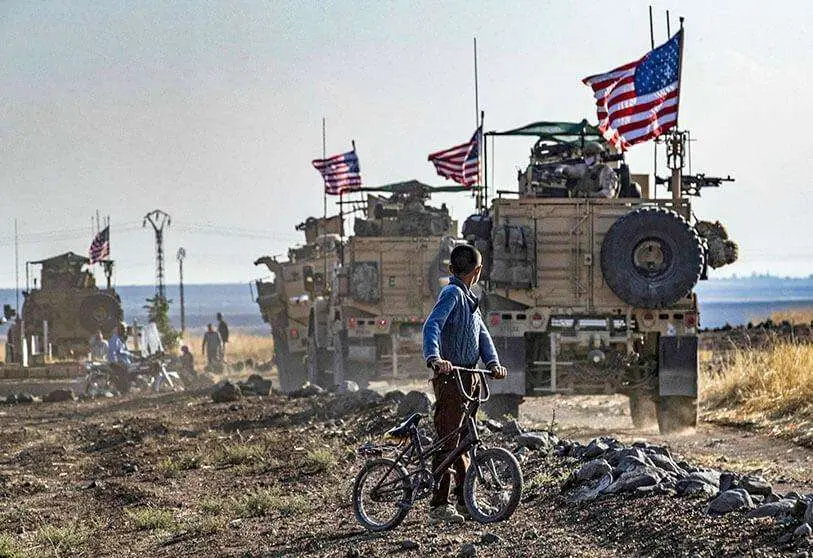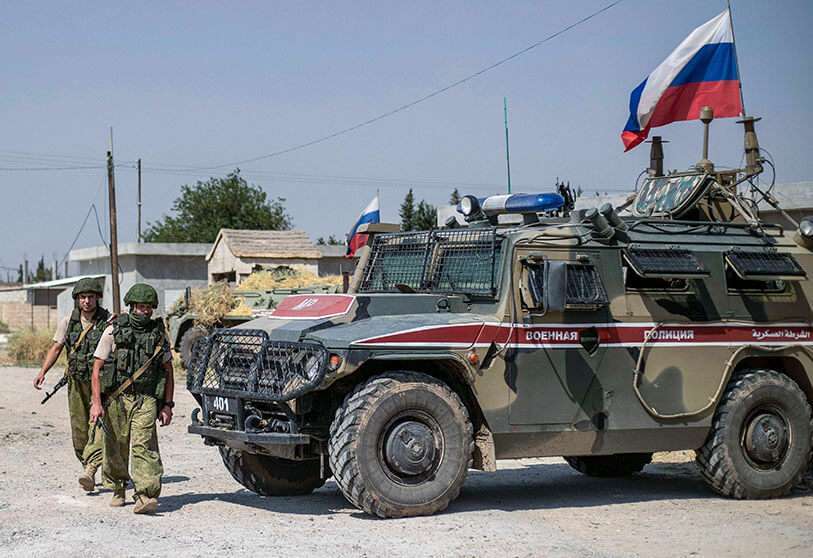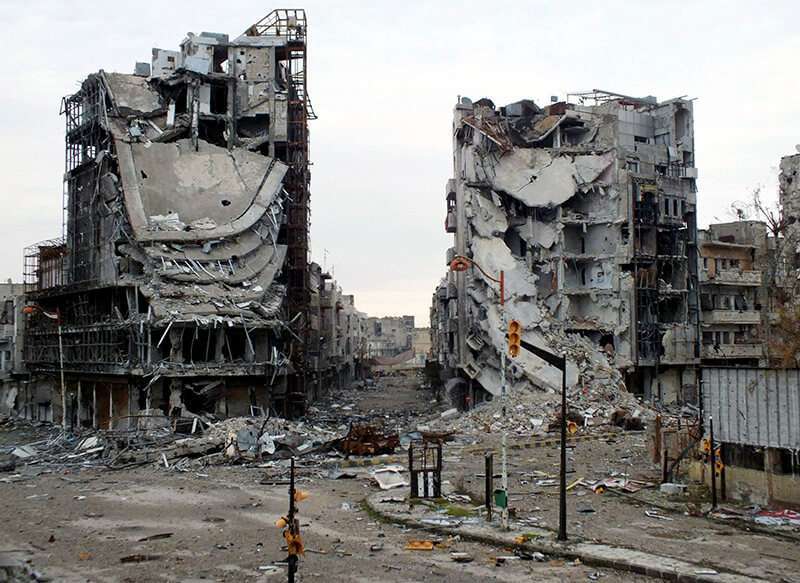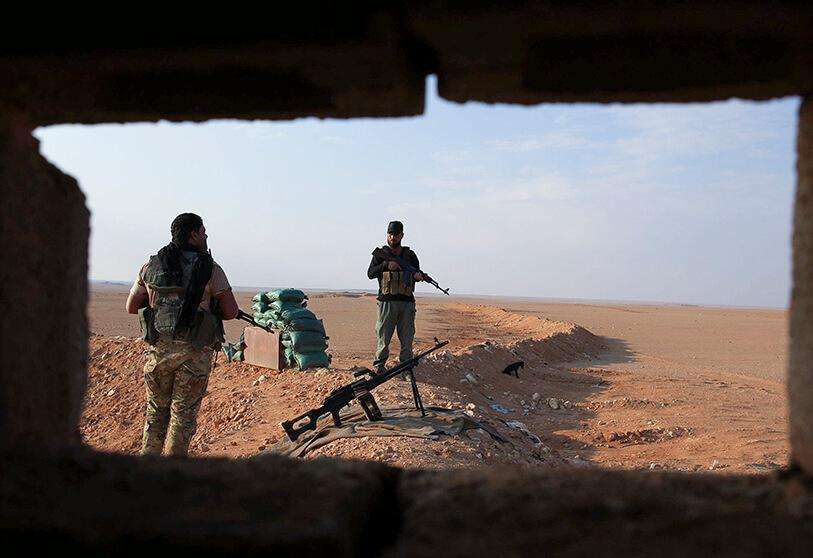Explosion near US-led coalition base in Syria

Syria has been dragging a civil war for more than 10 years, a conflict that, despite not presenting the rawness of years ago, is still latent and has not yet ended. The Syrian population is still dying, not so much from bombs, but from hunger and the devastation caused by this endless war.
One of the enclaves in eastern Syria where US troops are deployed to assist local forces in the fight against Daesh has suffered an explosion, which has shaken the vicinity of the US military base in Deir al-Zur province in the area of the Konico gas field. These areas of Deir al-Zur, including al-Bukamal and al-Mayadin, are controlled by Syrian government forces and are a regular transit point for Shia militias supporting Damascus between Iraq and Syria.

The Syrian Observatory for Human Rights confirmed the explosion in a statement and said no casualties have been reported so far. The UK-based NGO, which has a wide network of partners on the ground, said it was caused by the impact of a rocket that may have been launched by Tehran-backed militias from their positions west of the Euphrates River.
The incident comes amid tensions following US strikes last month on three targets accused by Washington of being used by pro-Iranian groups in eastern Syria and western Iraq. Also, Syrian Kurdish forces who have been fighting Daesh said they had foiled a drone strike near a major US-led international coalition base in eastern Syria in the area of the Al Omar oil field, not far from the Iraqi border.

Before the coronavirus crisis, tension and escalating violence in Syria's Idlib province, the last rebel and jihadist stronghold, between Ankara and Moscow sparked fears of an open war that is causing a humanitarian disaster. The agreement between Recep Tayyip Erdogan and Vladimir Putin was intended to guarantee the protection of civilians and establish a six-kilometre "security corridor" on each side of the M4 highway, a strategic axis that crosses the Idlib region. But violations of this cessation of hostilities have been continuous, both by Turkish-backed groups and Russian forces.
However, the international community has reacted with relief to the UN's agreement to extend the humanitarian aid mission for Syrian civilians for six months. Millions of civilians living in the last opposition stronghold depend on this aid, and the expiry of the resolution extending for six months - renewable under conditions - the organisation's mechanism for cross-border humanitarian aid from Turkey to northern Syria would have forced the UN and its humanitarian partners to halt their operations on the ground. Russia had argued for months that it wanted these cross-border operations to end and for all aid to be channelled through Damascus, but finally accepted a compromise with the other countries that will keep the system in place.

As the Damascus regime regained territorial control of the country, Moscow, its close ally, had forced the closure of all border crossings used since 2014 to deliver aid to Syria's population from outside the country except one, Bab al Hawa, which links Turkey to the northwestern province of Idlib. Damascus and Moscow insist that aid from Turkey benefits the "terrorist groups" that control Idlib and argue that convoys across the front lines, i.e. from inside Syria, should be sufficient to meet the needs of the population.
A cross-border aid operation to Syria was first authorised by the Council in 2014 and was carried out through four different entry points. Last year, aid was reduced to a single entry point from Turkey, to a rebel-held area in Syria, as a result of Russian and Chinese opposition to renewing the other three.
The international isolation to which Syria has been subjected since the war began in 2011 and international sanctions have only aggravated the precarious economic situation in the country, with 80 per cent of the population living below the poverty line. The pandemic caused by COVID-19 has only worsened this situation. The value of the Syrian pound has plummeted on the black market, accelerated also by the financial crisis in neighbouring Lebanon, whose banking system has long served as a backbone for the supply of dollars.

The price of diesel fuel soared by more than 177 per cent and bread by 100 per cent, according to the official Sana news agency. The increase coincided with a decree issued on Sunday by President Bashar al-Assad that set a 50 per cent increase in public sector salaries and set the minimum wage at 71,515 Syrian pounds a month ($57 at the official exchange rate) from 47,000 pounds ($37).
A litre of diesel for transport and agricultural industries and the public sector now sells for 500 Syrian pounds, up from 180 pounds previously. The price of the same amount of diesel for bakeries has increased from 135 to 500 Syrian pounds, according to Sana.
An official at Syria's state-owned oil products storage and distribution company, Mustafa Haswiya, said 80 per cent of Syria's hydrocarbon needs were purchased abroad through foreign currency. "It was necessary to raise prices to reduce the import bill and ensure the liquidity needed to continue supplying oil derivatives," he said, quoted by Sana. The price of subsidised bread has doubled from 100 to 200 Syrian pounds.
Today, fighting on the ground has been reduced to a virtual minimum. Indeed, a deal brokered by Turkey and Russia in March 2020 froze a government offensive on the rebel-held enclave of Idlib that would have resulted in the loss of many more lives, especially civilians. Bashar al-Assad's government controls more than two-thirds of the country and succeeded in legitimising a fourth seven-year term in office in the last elections, with 95.1% of the vote.








